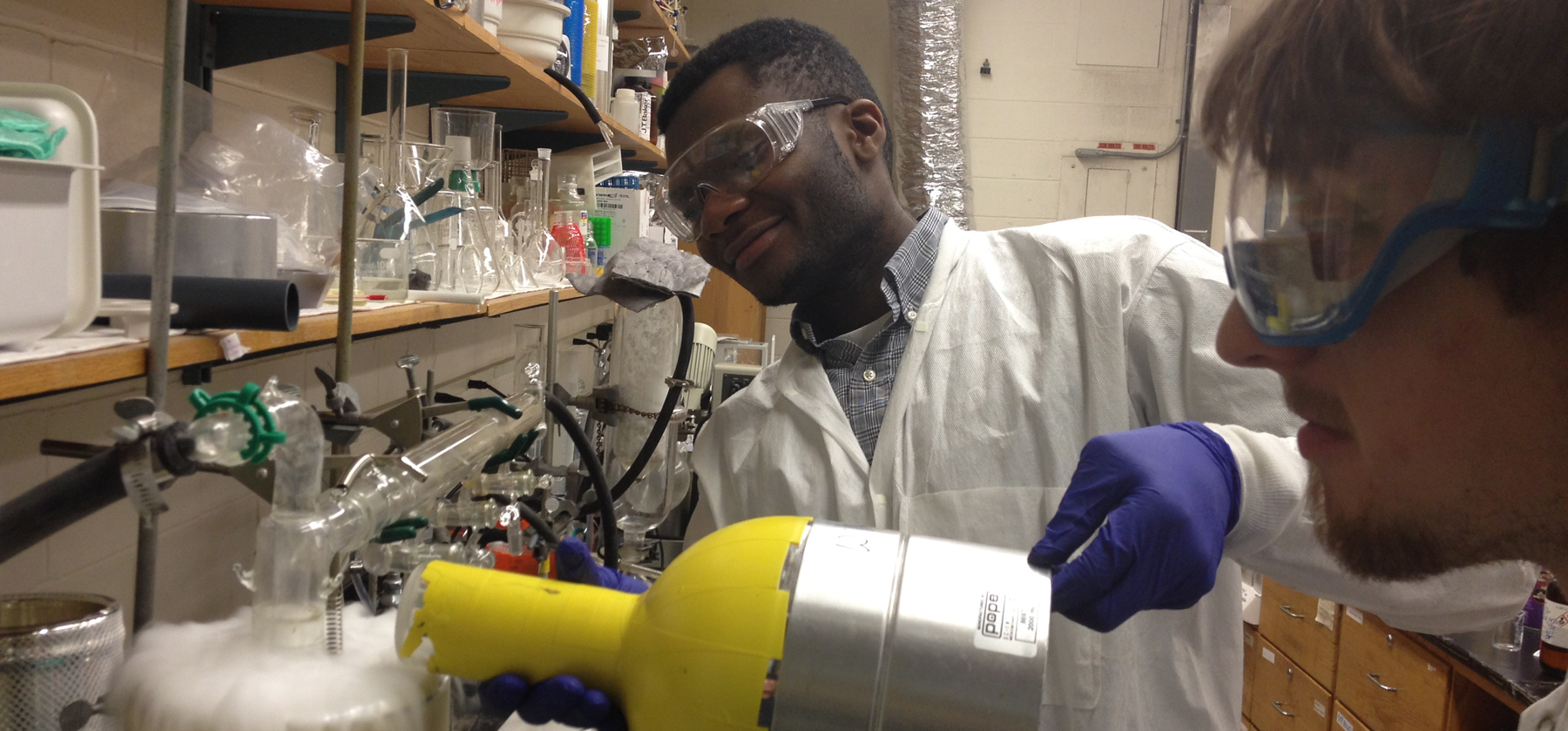Home Page
Schmitthenner
Molecular
Imaging Lab
The philosophy in the Molecular Imaging lab is to apply fundamental aspects of chemistry and imaging science to practical applications in medical imaging and therapy in cancer research. Our research involves a mix of peptide, dye and organometallic chemistry to produce molecularly targeted agents for fluorescence, photoacoustic, MRI and PET imaging and photodynamic therapy.
Our goal is to transform early diagnosis of cancer by creating novel imaging agents that specifically target biomarkers in cancer cells. We’ve recently added photodynamic therapy of cancer to our goal as well. Our strategy incorporates a new modular synthetic method we developed for preparing single and multi-modal imaging agents, and dual agents that combine imaging and therapy.
Research

New synthetic approaches to targeted molecular imaging agents (TMIAs)
We are designing and synthesizing targeted imaging agents for fluorescence and photoacoustic imaging (dyes), MRI (chelated metals such as gadolinium), and PET (chelated metals such as Ga and Cu).
This method is described in a recent article in ACS Applied Biomaterials, a new digital journal.
https://pubs.acs.org/doi/full/10.1021/acsabm.1c00157#. There are 14 RIT students who contributed to this manuscript and three RIT professors.

New peptide-based modular method first applied to the synthesis of TMIAs for prostate cancer
A new modular method based on pre-constructed imaging modules that students call “imaging puzzle pieces” that are bonded to targeting modules in the last step of synthesis. This was utilized in the synthesis of metal based targeted probes for MRI and PET of prostate cancer as described in this recent manuscript: https://pubmed.ncbi.nlm.nih.gov/31364213/

New targeted imaging agents for fluorescence guided surgery and photodynaimc therapy of breast cancer
In collaboration with Dr. Maureen Ferran (GSOLS at RIT) we are testing targeted agents for triple negative breast cancer cells utilizing confocal fluorescence microscopy (CFM). We have excellent preliminary data in confocal fluorescence microscopy (CMF) and have recently received a $ 25,000 grant from the Foundation for Women’s wellness for research in 2021 for extending this research to photodynamic therapy of breast cancer.


